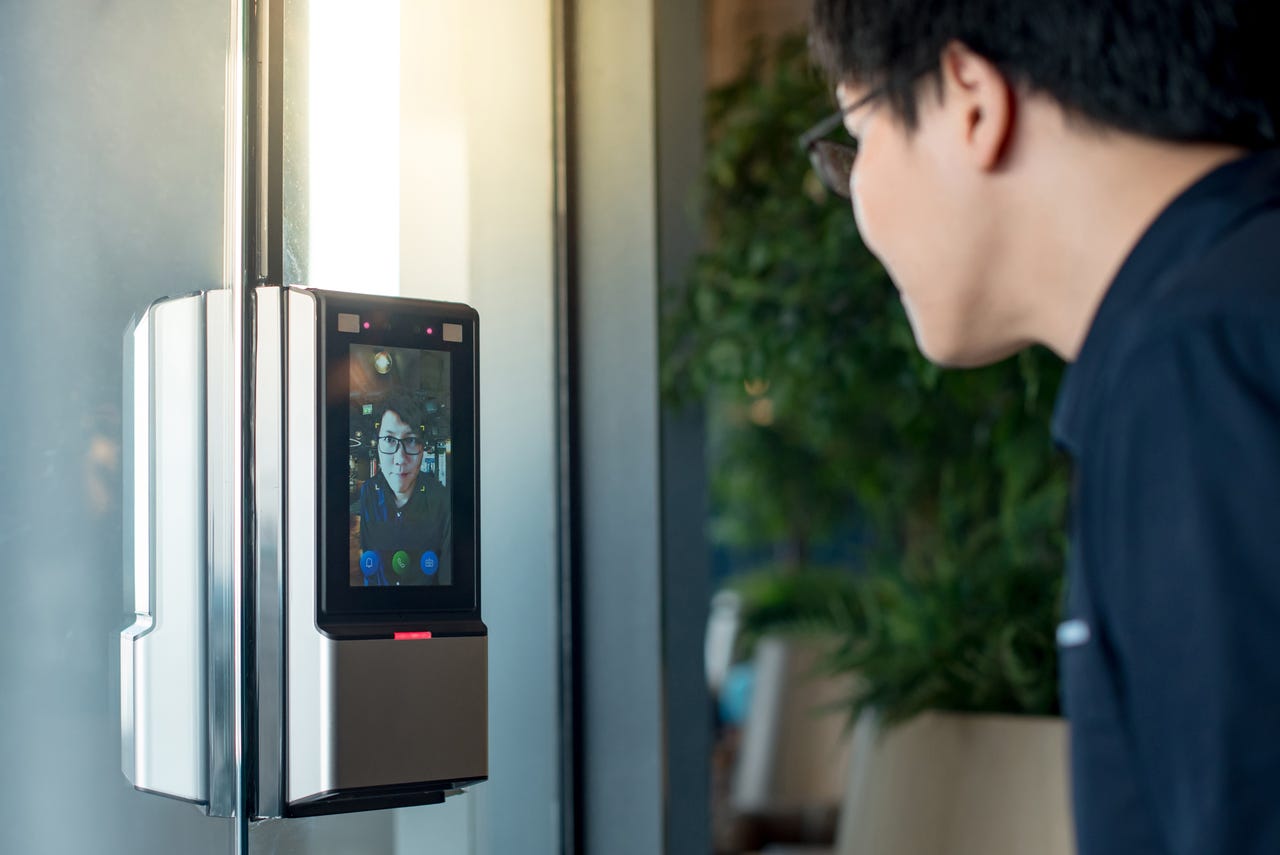Supermarkets using 'facial age estimation' tech to card booze-buyers? Oh, the flattery


And the software says: "21."
Increasingly, you have little choice.
You're wafting through an airport. The only way you can keep wafting toward your destination is by standing in front of a camera and letting it take your picture, to confirm who you are.
But have you ever thought of all the other wonderful ways in which this ubiquitous video technology might make your life easier and happier?
Pinot and a picture, anyone?
Please let me paint you a picture. You're at your favorite supermarket. There's a special offer on a robust Pinot and you simply can't resist.
Special Feature
You go to the checkout and you're not asked for any documents to prove your age. Instead, there's a camera, accompanied by clever software, that estimates your age.
In my fantasy, it speaks to me and says, "Darling, you're no older than 38."
In reality, this system has recently been tested at various famous supermarkets in the UK. The likes of Asda and Tesco have been trialing a system created by a company called Yoti.
This company, quite naturally, enjoys the motto: "Digital Identity as a Force For Good." Because what else could it be?
Still, this big facial test was conducted in conjunction with the authorities. Yes, Britain's Home Office -- where one or two boozy parties may have been held during the pandemic -- has been intimately involved.
The twin joys of Yotification
There are two aspects to this Yotification system. The first may be the most fascinating. For this software estimates how old you are, as you're eagerly waiting to pay for your Pinot.
Innovation
Yoti insists the beauty of it is that you don't need to hand over any personal information. The company adds that any images are immediately pulped.
But what if the software thinks you're too young when you're not? Well, the humans in this experiment were then asked to use one of two apps -- one from Yoti and one from Britain's Post Office -- to scan a QR code and confirm their age.
So you're trying to hurry up, yet have to find an app on your phone, open it, and scan? Is that really quicker than showing your ID to a human?
I have, though, a fascination with a third possibility. What if you're one of those male youths who happens to have grown surprising amounts of facial hair, which causes you to look much older than your actual 17? We'll come to that in a minute, because Yoti is very keen to declare this test had marvelous results.
Apparently, all these supermarkets would now love to be permanently Yotified. This would require the government to change its laws. Moreover, Yoti declares: "The majority of shoppers who used Yoti digital proof of age solutions liked the technology and would use it again, once available."
Also: Supermarkets are taking laughable steps to stop self-checkout theft (customers hate it)
There were more lovely results. Sample: "Digital age verification technology provided an opportunity to reduce the number of physical age interventions, giving retail staff more time to monitor other activities, including spotting proxy sales."
I don't know how often you enjoy a physical age intervention, but, hurrah, Yotification seems to reduce it.
Here's the next alleged positive: "Yoti facial age estimation is more inclusive because anyone who looks over the required age threshold does not need to carry around a physical ID to prove their age."
Did I hear you mutter something scornful? Did you hear me wish that it would display an exact estimated age? Just think of the warm feelings that could engender.
It's perfect. Really, it's perfect
Now to the more incredible -- choose your meaning of that word carefully -- aspect of the experiment.
Says Yoti: "No underage customers purchased age restricted items when using the new Yoti age verification technology."
How distressing. A technology that claims to be perfect.
I sense you're still a touch skeptical. Well, Yoti would like you to know you're in the minority: "With 70% of people saying they would use facial age estimation when buying age restricted goods at self-checkout, we believe shoppers and retailers are ready to embrace this new technology."
I'm sure I should have mentioned this before, but it somehow slipped my mind. This whole thing was being tested at self-checkouts. Some shoppers have very strong opinions about the way those things are currently handled.
Why, another large British supermarket chain, Sainsbury's, is so distrusting of its self-checkout customers that it's now installed a gate where they have to scan their receipt before being allowed to leave.
Retailers in the US are also bemoaning the notion that technological checkout is the best way forward. They're constantly complaining that self-checkout has spawned an increase in theft.
Ah, but Yotification is surely just another step toward our faces being our complete digital calling cards.
Nothing will go wrong, I promise.
Correction: An earlier version of this article inferred that Yoti uses facial recognition technology. Instead it uses facial age estimation, which does not crosscheck images with a database of faces.